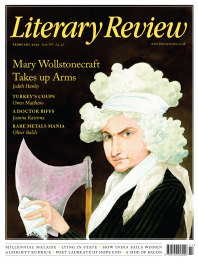Mick Herron
Didcot Calling
The first thing my radio tells me this morning is that travel conditions are ‘unfavourable’. Talk about rubbing it in. Discounting the odd walk beyond the city limits, I’ve left Oxford twice in the past ten months, and without being one of life’s vagabonds, even I’m finding things a little static. All our horizons have shrunk; our destinies have been squeezed.
Because I have a new book out, I would, if not for the virus, be on the road now, which is a glamorous way of saying I’d be visiting bookshops, talking to readers, signing books… When I see my calendar furring up with these events, I experience anxiety pangs; routine-bound, I find disruption a wrench. But this doesn’t usually last longer than it takes to lock the door behind me, and I happily surrender to an itinerary once on a train or a plane. The truth is that I enjoy meeting readers and spending evenings in bookshops and libraries. Being surrounded by books has a calming effect, which helps counteract the alarm of facing an audience, itself only mildly less alarming than the prospect of there being no audience at all. Besides, those who attend such events are almost invariably warm and generous, mistakenly believing themselves to be the privileged parties to the encounter. A few want to give you their self-published novels, true, but a good moderator will usually see them off.
Sometimes book events involve overnight stays, which means a hotel breakfast, to which I take a Homer Simpson-like approach. And heading home by morning light has a skiving-off feel to it, which is a bonus. But there’ll always be times when I’m hurrying for an evening train just as I’m

Sign Up to our newsletter
Receive free articles, highlights from the archive, news, details of prizes, and much more.@Lit_Review
Follow Literary Review on Twitter
Twitter Feed
It wasn’t until 1825 that Pepys’s diary became available for the first time. How it was eventually decrypted and published is a story of subterfuge and duplicity.
Kate Loveman tells the tale.
Kate Loveman - Publishing Pepys
Kate Loveman: Publishing Pepys
literaryreview.co.uk
Arthur Christopher Benson was a pillar of the Edwardian establishment. He was supremely well connected. As his newly published diaries reveal, he was also riotously indiscreet.
Piers Brendon compares Benson’s journals to others from the 20th century.
Piers Brendon - Land of Dopes & Tories
Piers Brendon: Land of Dopes & Tories - The Benson Diaries: Selections from the Diary of Arthur Christopher Benson by Eamon Duffy & Ronald Hyam (edd)
literaryreview.co.uk
Of the siblings Gwen and Augustus John, it is Augustus who has commanded most attention from collectors and connoisseurs.
Was he really the finer artist, asks Tanya Harrod, or is it time Gwen emerged from her brother’s shadow?
Tanya Harrod - Cut from the Same Canvas
Tanya Harrod: Cut from the Same Canvas - Artists, Siblings, Visionaries: The Lives and Loves of Gwen and Augustus John by Judith Mackrell
literaryreview.co.uk